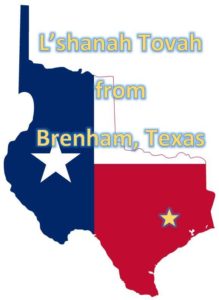
Why is the Feast of Trumpets (aka Yom Teruah or Yom ha-Zikkaron) also called Head of the Year (Rosh Hashanah) when God specifically said that Nisan is the first month of the year? Every calendar has multiple years. We have fiscal years, school years, birth years, tax years, etc. The ancient Hebrews were no different. But what, specifically, makes this day a “new year” day?
There are two reasons, one mystical and one practical. Traditionally, Adam and Eve were created on Rosh Hashanah, so we blow the horns in honor of the world’s birthday and in remembrance of the Voice of God that caused the world to come into being. More scripturally, the year of Jubilee begins in the seventh month (this month, now called Tishrei). Every seventh year in the seventh month, debts were forgiven, Hebrew slaves set free, and the land given one year of rest from active agriculture. Every fiftieth year in the seventh month, all land returned to the original owners, the families to whom the land was granted in the time of Joshua. (See Leviticus 25)
Technically, the release of slaves and land begins at Yom Kippur, which is the 10th day of the month, making it simultaneously the most solemn and the most joyful day on God’s calendar. Regardless, the month of Tishrei is still the first month of the year for the purposes of the Jubilee, so the first day of Tishrei is considered the first day of the year.
L’shana Tova! Happy New Year! May you find freedom in Yeshua this year and every year.
Everything that Yeshua (aka Jesus) & the Apostles taught
Come with me as I draw out the connections that are so often missed |

